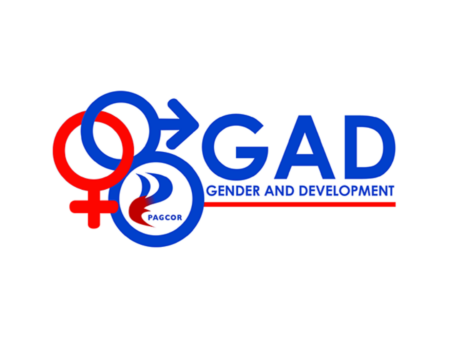Recent reports from various Philippines news outlets highlight an intensified crackdown on illegal offshore gaming operators (POGOs) and foreign crime syndicates operating within the country.
Legal vs. Illegal POGOs: Economic Contributions and Challenges
Legal Operations
POGOs operating legally under the Philippine Amusement and Gaming Corporation (PAGCOR) have significantly contributed to the country’s economy. PAGCOR’s Chairman and CEO, Alejandro H. Tengco, emphasizes their positive impact through tax revenues and employment opportunities in the gaming sector.
Illegal Activities and Money Laundering Concerns
However, the presence of illegal POGOs has posed serious challenges. These operations have been linked to money laundering activities, prompting the Financial Action Task Force (FATF) to place the Philippines on its “gray list” for increased monitoring of financial transactions. Anti-Money Laundering Council Executive Director, Matthew David, has underscored the difficulty in prosecuting these entities due to the complex nature of financial crime.
Impact on Philippines’ Economic Ambitions and Regulatory Environment
Economic Ambitions at Risk
The proliferation of illegal POGOs threatens the Philippines’ aspirations to become a regional investment hub. The presence of such illicit activities undermines efforts to foster a safe, regulated environment conducive to sustainable economic growth in the gaming and gambling sectors.
Regulatory Measures and Law Enforcement Actions
In response to these challenges, the Philippines Government has escalated its efforts. Recently, the Presidential Anti-Organized Crime Commission (PAOCC) conducted a high-profile raid resulting in the arrest of over a hundred suspects, including both local and foreign nationals involved in illegal POGO operations. This crackdown underscores the government’s commitment to tackling organized crime and ensuring compliance with regulatory standards.
Government’s Commitment and International Relations
Diplomatic and Legal Efforts
The Philippines Government has prioritized addressing the issue of illegal POGOs on both domestic and international fronts. The recent arrests and law enforcement actions reflect a concerted effort to uphold transparency, combat corruption, and safeguard national interests. These initiatives are crucial not only for domestic law enforcement but also for strengthening diplomatic relations and international cooperation in combating transnational crime.
Challenges and Future Outlook
Despite these efforts, combating illegal POGOs remains a formidable challenge. The evolving nature of cybercrime and financial fraud necessitates continuous adaptation of regulatory frameworks and enforcement strategies. The Philippines authorities face ongoing challenges in balancing economic opportunities with stringent regulatory oversight to maintain investor confidence and uphold national integrity.
Conclusion: The Crackdown on Illegal Offshore Gaming Operators
The crackdown on illegal offshore gaming operators in the Philippines underscores the government’s commitment to law enforcement, economic stability, and international cooperation. As the nation strives to overcome these challenges, enhancing regulatory transparency and strengthening enforcement capabilities will be crucial for achieving its ambitions in the global gaming sector.
FAQs About Crackdown on Illegal Offshore Gaming Operators in the Philippines
1. What are POGOs?
POGOs refer to offshore gaming operators that offer online gambling services to customers outside their jurisdiction, often from countries where gambling regulations are stringent or prohibited.
2. What is the current status of POGOs in the Philippines?
In the Philippines, some POGOs operate legally under the Philippine Amusement and Gaming Corporation (PAGCOR), contributing positively to the economy. However, illegal POGOs continue to pose significant challenges, particularly related to money laundering.
3. Why are illegal POGOs a concern?
Illegal POGOs in the Philippines have been linked to money laundering activities, prompting international scrutiny and leading to the country being placed on the Financial Action Task Force (FATF) “gray list.” These activities undermine regulatory efforts and pose risks to financial integrity.
4. What actions has the Philippines Government taken against illegal POGOs?
Recently, the Presidential Anti-Organized Crime Commission (PAOCC) conducted a major raid, resulting in the arrest of numerous suspects involved in illegal POGO operations. This demonstrates the government’s commitment to combatting organized crime and enforcing regulatory compliance.
5. How do illegal POGOs affect the Philippines’ economic ambitions?
The presence of illegal POGOs jeopardizes the Philippines’ goal of becoming a regional investment hub. It undermines efforts to establish a safe and regulated environment for the gaming sector, essential for attracting legitimate investments.
6. What are the challenges faced by the Philippines in addressing illegal POGOs?
One of the main challenges is the complexity of prosecuting financial crimes associated with illegal POGOs. Anti-Money Laundering Council (AMLC) Executive Director Matthew David has highlighted these challenges, emphasizing the need for robust enforcement and regulatory measures.
7. What is the government’s strategy moving forward?
Moving forward, the Philippines Government aims to enhance transparency and governance in the gaming sector. This includes strengthening regulatory frameworks, improving enforcement capabilities, and fostering international cooperation to combat transnational organized crime.
8. How does the crackdown on illegal POGOs impact diplomatic relations?
The crackdown on illegal POGOs is crucial for maintaining diplomatic relations and international cooperation in combating financial crimes. It demonstrates the Philippines’ commitment to upholding global standards and fostering trust among international partners.
9. What are the implications of the recent raid and arrests?
The recent raid and arrests underscore the Philippines’ determination to uphold law and order. It sends a strong message to illicit operators that illegal activities will not be tolerated, thereby promoting a more secure business environment.
10. What are the future prospects for regulating POGOs in the Philippines?
The Philippines Government continues to evaluate and strengthen its regulatory framework for POGOs. Future efforts will focus on enhancing transparency, improving oversight, and mitigating risks associated with illegal gambling activities.


















